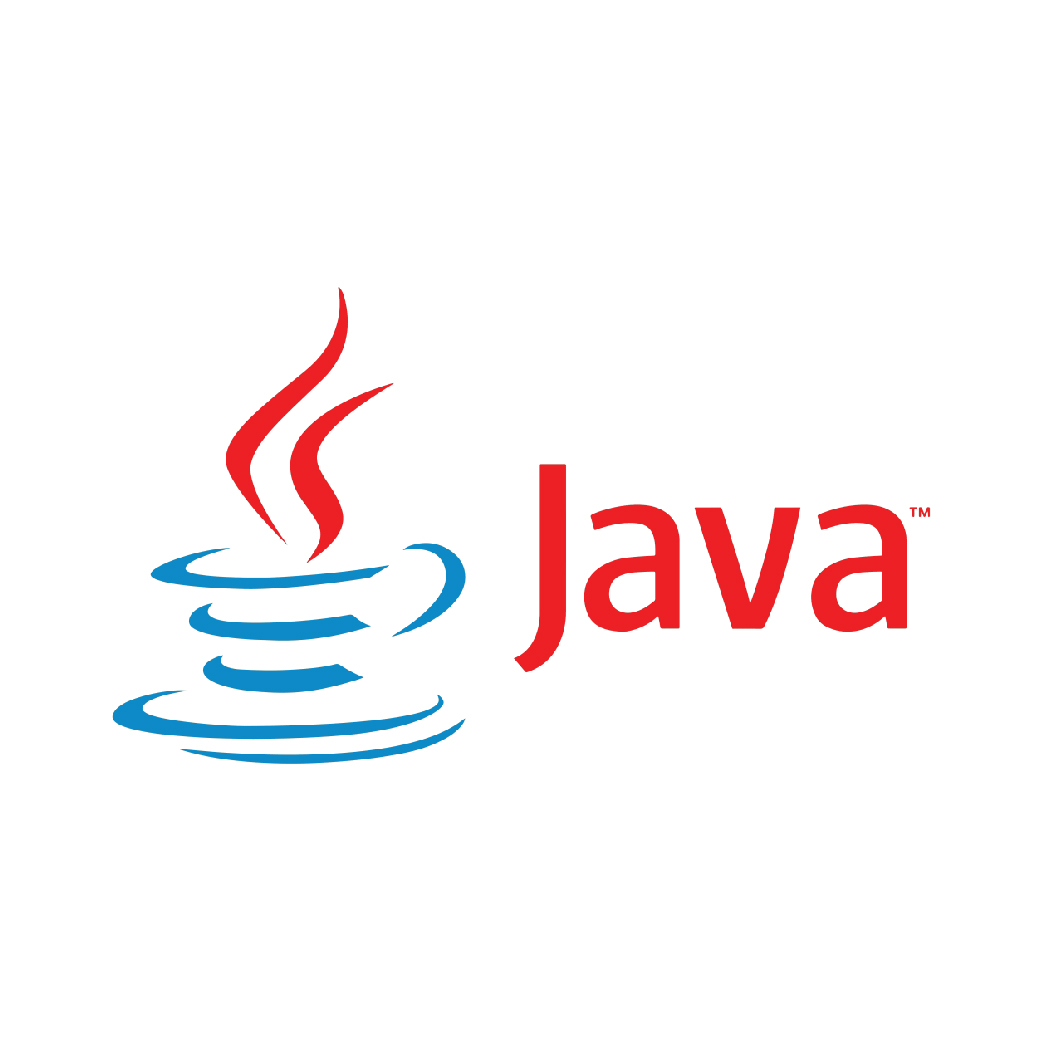Is Java Still Used? The Enduring Relevance of Java
Java’s Timeless Legacy: Unveiling Its Enduring Relevance in Today’s Tech Landscape.

Everything you need to know about
Is Java Still Used?
Java, a programming language developed by James Gosling and his team at Sun Microsystems in the 1990s, remains a cornerstone of the software development industry. Over the decades, Java has evolved, adapted, and maintained its relevance in the face of new programming languages and technological advancements. In this article, we explore the enduring significance of Java and its continued utilization in the modern tech landscape.
A Brief Overview of Java’s History
Before delving into Java’s current status, let’s briefly examine its history. Java was officially released by Sun Microsystems in 1996 as a language designed for “write once, run anywhere” (WORA). The key innovation was the Java Virtual Machine (JVM), which allowed Java code to be executed on any platform, regardless of the underlying hardware or operating system.
Initially, Java gained popularity in web applets, but it soon expanded its reach to enterprise-level applications and backend development. The language’s object-oriented nature, robust standard library, and platform independence contributed to its popularity.
Java’s Role in Modern Software Development
Despite the emergence of new programming languages and frameworks, Java has maintained its position as a dominant force in the software development ecosystem. Here are some reasons why Java is still extensively used today:
Versatility and Platform Independence
Java’s “write once, run anywhere” capability remains relevant in today’s multi-platform world. Java applications can run on Windows, macOS, Linux, and mobile devices like Android.
Our Executive Team

Common Industries we provide Java Development Services:
Healthcare & Life Sciences
SaaS & Information Services
Manufacturing
Financial Services & FinTech
Retail & E-Commerce
Insurance
Logistics & Automotive
Travel & Hospitality
The Most Important for Things about
the Java Large Standard Library
Java’s extensive standard library, the Java Development Kit (JDK), provides a wide range of built-in classes and APIs for various tasks, making development more efficient. Click here to learn more about API’s in Java.
Strong Ecosystem
Java boasts a robust ecosystem with many frameworks, libraries, and tools. Java developers can access popular frameworks like Spring, Hibernate, and Apache Struts, which accelerate development and simplify complex tasks (1).
“Oracle, the current proprietor of Java, also has a dedicated Java SE community page. Here, the Java community members can access stuff like newsletters, magazines, language summits, bug databases, discussion forums (of course), and more.”
– Medium
Performance and Scalability
Java’s performance has significantly improved, thanks to JIT (Just-In-Time) compilers and optimizations. This allows Java applications to achieve high performance and scalability, making it suitable for enterprise-level projects.
Popularity in Enterprise Applications
Java’s reputation in the enterprise world is well-established. It is often the preferred language for developing large-scale applications, especially in finance, banking, e-commerce, and other sectors where reliability and performance are critical.
Continued Updates and Support
Java receives regular updates and improvements from its steward, Oracle, and the open-source community. This ensures that Java remains secure, efficient, and aligned with industry trends.
Java in Modern Web Development
While Java initially gained popularity in web applets, its role in modern web development has evolved. Java is commonly used on the server side to build robust and scalable web applications. Java-based frameworks like Spring Boot, JavaServer Faces (JSF), and JavaServer Pages (JSP) enable developers to create dynamic web applications.
Moreover, Java has a strong presence in web services and microservices architecture. Java’s ability to handle concurrent requests and process data efficiently makes it an excellent choice for building RESTful APIs and microservices-based architectures.


Common Industries we provide Java Development Services:

COST-EFFECTIVE DEVELOPERS
Our Software Developers and Engineers cost
on average $45 to $65 per hour

HIGHEST QUALITY DEDICATED TEAMS
Access to the TOP 1% of Nearshore Software Development resources in Latin America

TIME SENSITIVE DEVELOPMENT
Sonatafy’s Nearshore Talent Acquisition can place qualified Software Engineering teams in as quick as 2 weeks
Java in Android
App Development
Java’s significance extends to the mobile app development space. Android, the most widely used mobile operating system globally, utilizes Java as its primary programming language. Android app developers leverage Java to create most mobile applications on the Google Play Store.
While Kotlin, a newer programming language, has gained traction in the Android development community, Java continues to be a popular choice due to its maturity, extensive documentation, and vast pool of Java developers with Android expertise.
Java in Big Data and Cloud Computing
Java’s scalability, performance, and ability to handle large datasets have made it a preferred language for big data and cloud computing applications. Java is often used with Apache Hadoop, Spark, and other big data frameworks to process and analyze massive datasets.
Additionally, Java has a strong presence in cloud computing, with many cloud service providers offering Java support. Developers can build cloud-native applications using Java-based frameworks like Spring Cloud and deploy them to cloud platforms like AWS, Azure, or Google Cloud.
Java’s Impact on the Internet of Things (IoT)
As the Internet of Things (IoT) grows, Java has found its way into the realm of embedded systems and IoT devices. Java’s portability, memory management, and real-time capabilities make it suitable for developing applications that power IoT devices and manage data streams from connected devices (2).
“Since Java runs in the JVM (Java Virtual Machine), developers can easily transfer Java code to any chips, devices or software packages with the pre-installed JVM.”
– Science Soft
Java’s enduring relevance in the modern tech landscape is a testament to its adaptability, performance, and strong community support. Java plays a vital role in various domains, from enterprise applications and web development to Android app development, big data, cloud computing, and IoT.
As technology evolves, Java’s continued updates, support from the open-source community, and robust ecosystem ensure that it remains a relevant and valuable programming language for years. Developers with Java expertise are in high demand, making Java an excellent choice for experienced professionals and aspiring developers seeking a robust and rewarding career path in the software development industry.

Interested In Working With Sonatafy?
The Benefits and Reasons Behind
Why Java is Still Relevant in 2023 and Beyond
As we enter 2023, Java’s enduring relevance in the tech landscape remains evident, and there are several compelling reasons why this programming language continues to thrive. Let’s explore the benefits and reasons that make Java a powerful and indispensable choice for software development in the present and beyond:
Mature and Stable Technology:
One of the primary reasons behind Java’s continued relevance is its maturity and stability. Java has been around for over two decades, making it a well-established and battle-tested technology. The language has undergone numerous improvements and updates over the years, resulting in a robust and reliable platform for building complex and large-scale applications.
Widely Adopted in Enterprise Solutions:
Java’s popularity in the enterprise domain is unmatched. It has become the go-to choice for building mission-critical applications, financial systems, e-commerce platforms, and other high-performance solutions. Java’s ability to handle heavy workloads, scale efficiently, and maintain a high level of security has made it a trusted technology for enterprise-grade applications.
Strong Community and Ecosystem:
Java benefits from an extensive and vibrant community of developers, contributors, and enthusiasts worldwide. This thriving community continues to support and improve the language through open-source projects, libraries, and frameworks. The Java ecosystem has tools, frameworks like Spring, and libraries that simplify development and accelerate project delivery.
Cross-Platform Compatibility:
Java’s “write once, run anywhere” mantra still holds, making it a powerful language for cross-platform development. Java bytecode, executed on the Java Virtual Machine (JVM), ensures that Java applications can run seamlessly on different operating systems and architectures. This portability is especially valuable in today’s diverse and dynamic technology landscape (3).
“Java can run on any operating system, making it a top choice for cross-platform applications.”
– Level Up
Popular Choice for Android Development:
Java’s significance extends beyond server-side and enterprise applications. It remains the primary language for Android app development. Most apps on the Google Play Store are written in Java, making it a core language for the Android ecosystem. While Kotlin has gained popularity, Java’s legacy and extensive library support make it a preferred choice for Android development.
Performance Optimizations:
Over the years, Java has undergone significant performance optimizations thanks to advancements in Just-In-Time (JIT) compilation and other techniques. The HotSpot JVM, introduced by Oracle, has contributed to substantial performance improvements, making Java competitive with other programming languages in speed and efficiency.
Strong Security Features:
Java has a robust security model that ensures the safety of applications against potential threats like code injection and malicious attacks. The JVM’s security manager helps control resource access, protecting the system from unauthorized actions. Java’s commitment to security makes it a preferred choice for applications that handle sensitive data and mission-critical operations.
Thriving in Cloud-Native Environments:
Java has smoothly transitioned into cloud-native development and is well-suited for building microservices and cloud-based applications. Frameworks like Spring Cloud facilitate the development of cloud-native architectures, enabling developers to build scalable and resilient applications that thrive in cloud environments.
Robust Support for Big Data and Analytics:
Java’s ability to handle large datasets and its seamless integration with big data frameworks like Apache, Hadoop, and Spark has made it a favored language for big data processing and analytics. Java’s performance and scalability contribute to efficient data processing in various big data applications.
Continued Updates and Long-Term Support:
Java’s steward, Oracle, continues to provide regular updates and support for the language. Java’s Long-Term Support (LTS) versions ensure that enterprises can rely on the tongue for extended periods without frequent migrations or significant changes in the codebase.
Java’s enduring relevance in 2023 and beyond can be attributed to its stability, versatility, and strong community support. Its maturity as a language, extensive ecosystem, cross-platform compatibility, and performance optimizations continue to make it a valuable asset in various domains, from enterprise solutions to Android app development, cloud-native architectures, and big data analytics.
As the technology landscape evolves, Java’s continued updates, long-term support, and adaptation to new paradigms ensure that it remains a reliable and future-proof choice for software development. Aspiring developers and seasoned professionals alike can confidently embrace Java, knowing it will continue to be a powerful and widely adopted language.
%
TOP NEARSHORE TALENT
%
ATTRITION RATE
%
ENGLISH PROFICIENCY
RESOURCES DEPLOYED
Is Java Still Used
in 2023?
Yes, Java is still widely used in 2023. Despite the emergence of new programming languages and frameworks, Java’s relevance has endured over the years, making it a staple in the software development industry. Its versatility, platform independence, robust ecosystem, and wide adoption in various domains contribute to its continued popularity.
Java’s Popularity Over the Years:
Java’s journey began in the mid-1990s, and since then, it has experienced consistent growth in popularity. Its “write once, run anywhere” capability, made possible by the Java Virtual Machine (JVM), attracted developers and companies looking for a cross-platform solution. Java’s object-oriented nature and robust standard library further solidified its position in the industry.
Why is Java One of the Most Popular Languages Over the Years?
Several factors have contributed to Java’s status as one of the most popular programming languages over the years:
- Versatility:Java’s ability to adapt to different application domains, from enterprise solutions to web development, mobile apps, and big data processing, has contributed to its widespread use.
- Platform Independence:The JVM allows Java code to run on various platforms, making it an attractive choice for projects with diverse target environments.
- Large Standard Library and Ecosystem:Java’s extensive standard library and the vast array of available frameworks, libraries, and tools contribute to developer productivity and project efficiency.
- Security and Performance:Java’s robust security features and performance optimizations make it a reliable choice for mission-critical applications.
- Community and Long-Term Support:Java’s active community and consistent updates from Oracle ensure that the language remains relevant and up-to-date.
Java Popularity in 2023:
In 2023, Java will remain a powerhouse in the software development landscape. It continues to be widely used in enterprise-level applications, web development, Android app development, cloud-native architectures, big data processing, and Internet of Things (IoT) applications. The language’s maturity, security, and scalability make it a preferred choice for startups and established companies (4).
“According to The PYPL PopularitY of Programming Language Index, in February 2022, Java was the second most popular language in the world, and its use has grown by 1.2% compared to February 2021.”
-Forbes
What is Java Used for Widely?
Java finds extensive usage in various domains:
- Enterprise Applications:Java is the backbone of many enterprise-level applications, including financial systems, customer relationship management (CRM) software, and e-commerce platforms.
- Web Development:Java is used for server-side web development to create dynamic web applications and RESTful APIs.
- Android App Development:Java remains the primary language for developing Android applications.
- Cloud-Native Architectures:Java is well-suited for building microservices and cloud-based applications.
- Big Data Processing:Java’s performance and scalability make it a popular choice for big data processing and analytics.
- Internet of Things (IoT) Applications:Java is used in developing applications for embedded systems and IoT devices.
Java Development Services Company
Awards & Recognitions
Helping take our clients’ software development businesses to the next level has been quite an experience, and we are not slowing down any time soon. Providing a memorable experience and far surpassing our customers’ software development and solutions goals is one of the most rewarding experiences of our Java development company to date.
We’re ready to start helping your company grow with our industry-leading custom software development solution, are you?

Earning Trust & Loyalty for our Software Development Services
Our executive team proudly provides complete Java development solutions in the healthcare, SaaS, Manufacturing, and FinTech fields from deployment to completion.
Our client-centric software development solutions have made us the healthcare app development provider of choice for clients such as Akido Labs, Datacubed Health, Sema Technologies, and Semantic AI, among others. With thousands of software development engineers deployed to date, clients love our personalized high-touch approach.
With high-quality delivery web development services and strong customer support and management, we give you the ability to focus on business decisions rather than software development issues.
Sonatafy Technology services can dramatically
improve the Java Development Services.
Our Software Development Clients Have Spoken.

“We increased our productivity and quality by extending our team with Sonatafy resources. They are part of our ‘family’. Their passion, dedication, experience, and wisdom has been nothing short of impressive.”

“We have been using Sonatafy for software team augmentation. Their vetting process is extremely through and has saved us a huge amount of time. All of the candidates presented have been outstanding and have fit into our team perfectly.”

“The Sonatafy team consists of members who are dedicated, personable, and attentive. They will search tirelessly to match the right talent to meet your skills and budgetary requirements. Regardless of your situation, you cannot go wrong with Sonatafy.”

“The Sonatafy team has continually impressed us with the quality of their engineers — we have found excellent engineering leaders in their contractors who have helped tremendously. They really are an integral part of our team, and we’re very thankful for Sonatafy’s professional leadership in this space. I heartily recommend them to augment anyone’s teams or projects.”

“At IMAIGE Analytics, we are driven by purpose and outcomes. Sonatafy has been the exact type of partner we need to help us deliver on both. They’ve found solutions specific to our purpose and needs, their resources have contributed like long time team members from day one and they seem dedicated to progressively better outcomes from the start. Thanks to the team and to Steve for taking the time to make our business better!”

“The entire team at Sonatafy greatly surpassed our expectations. We require very specific skill sets and the team did an incredible job of screening and selecting top – notch candidates. Sonatafy’s attention to detail, professionalism, open communication, and collaboration with us ensured that we found highly skilled talent that fit seamlessly into our company’s culture. I can’t recommend them strongly enough.”

“Sonatafy makes it easy to find great and professional talent, with their help we have been able to solidify our team. Their process and communication is a refresher and a weight off our shoulders.”

I’ve used Sonatafy Technologies for the last 5 + years at several of my companies both small and large, in a staff augmentation capacity. I have been consistently impressed with the high – quality of technical skills as well as the team member’s high level of engagement and dedication to my projects. I’ve always considered my dedicated Sonatafy resources as members of my team , and their contributions and performance has been excellent. The combination of high performance and afford ability has been an outstanding benefit , and I would highly recommend using Sonatafy Technologies as your near shore technology partner.
The Future of Java in
Programming good?
The future of Java programming appears bright. Java continues to adapt to modern trends, including cloud computing, big data, IoT, and machine learning. The recent release of Java 21 further demonstrates Oracle’s commitment to the language’s ongoing relevance and evolution.
Java 21: A Testament to the Language’s Ongoing Relevance:
Java 21 is a testament to the language’s enduring relevance and adaptability. The latest version includes new features, improvements, and performance optimizations, keeping Java competitive and up-to-date with modern technologies.
Where is Java Used Mostly? Should You Choose Java for Your Next Project?
Java is used in various domains, as discussed earlier. Choosing Java for your next project depends on several factors, including the project’s requirements, team expertise, and existing tech stack. Java is an excellent choice for large-scale applications, web development, Android app development, and enterprise solutions. Its stability, performance, and robust ecosystem make it a safe bet for projects that require long-term support and scalability.
How to Adjust to the Evolving Technology Trends?
To adapt to evolving technology trends, developers must stay updated with the latest developments in the industry. Learning new tools, frameworks, and technologies helps developers remain competitive and relevant. Embracing new paradigms like cloud-native architectures, microservices, and serverless computing allows organizations to keep pace with technological advancements.
Companies That Use Java:
Many renowned companies across various industries rely on Java for their software development needs. These companies include Google, Amazon, Netflix, LinkedIn, Twitter, and more. Java’s wide adoption by industry giants further solidifies its position as a trusted and proven programming language (5).
“Not unexpectedly, the United States leads among enterprises that use Java, accounting for more than 60% of Java clients (about 64,000 businesses).”
– Free Code Camp
Top Reasons to Learn Java Even if It’s Your First Programming Language:
There are several reasons why beginners might choose Java as their first programming language:
- Easy to Learn:Java’s syntax is easy to understand and learn, making it an ideal choice for beginners.
- Versatile and Widely Used:Java’s versatility and wide usage provide ample opportunities for practical application and real-world projects.
- Strong Job Market:Java developers are in high demand, making it a lucrative career path.
- Community Support:Java’s large community offers plenty of resources, tutorials, and forums to aid beginners in their learning journey.
- Transferable Skills:Java’s concepts are transferable to other programming languages, allowing for seamless transition and growth in software development.
Java’s continued relevance in 2023 and beyond is a testament to its maturity, versatility, and adaptability. Its widespread adoption in various domains, continued updates, and vibrant community support makes it a robust and reliable choice for modern software development. Whether for enterprise applications, Android development, big data processing, or cloud-native architectures, Java’s strengths continue to propel it to the forefront of the software development landscape. Aspiring developers and seasoned professionals can confidently embrace Java for its potential to power innovative and cutting-edge solutions.
Is Java still relevant in 2023?
Yes, Java is still relevant in 2023. Despite the emergence of new programming languages and frameworks, Java’s versatility, stability, and robust ecosystem continue to make it a popular choice for various domains, including enterprise applications, web development, Android app development, big data processing, and cloud-native architectures. Its enduring relevance is a testament to its adaptability and continuous updates that align it with modern technological trends.
Should I learn Java or Python?
The choice between learning Java or Python depends on your goals, interests, and the type of projects you want to work on. Here are some factors to consider:
- Java:If you are interested in enterprise applications, Android development, big data processing, or cloud-native architectures, Java might be more suitable. Java’s strong presence in the industry and high demand for Java developers (https://sonatafy.com/what-does-a-java-developer-do/) make it a viable option for long-term career prospects.
- Python:If you are interested in data science, machine learning, web development, scientific computing, or rapid prototyping, Python might be a better fit. Python’s simplicity, readability, and extensive libraries for data analysis and machine learning have made it a popular choice in these domains.
Both languages have their strengths and applications, and learning either can be valuable for your career in software development.
Does anybody use Java anymore?
Yes, many companies and developers still use Java extensively for various applications. Java remains the backbone of many enterprise-level applications, financial systems, e-commerce platforms, and web services. It is also the primary language for Android app development, powering most applications on the Google Play Store. Java’s strong presence in big data processing, cloud-native architectures, and Internet of Things (IoT) applications demonstrates its continued usage and relevance.
Is Java a dead language?
No, Java is not a dead language. As discussed earlier, Java’s popularity and relevance in various domains show that it is still widely used and actively maintained. The continuous updates, the recent release of Java 21, and the strong community support attest to Java’s ongoing evolution and adaptability to modern technology trends. Java remains a valuable and powerful programming language for diverse projects, making it far from being considered a dead language.
References:
- Oracle, the current proprietor of Java, also has a dedicated Java SE community page. Here, the Java community members can access stuff like newsletters, magazines, language summits, bug databases, discussion forums (of course), and more. – Medium Quote
https://medium.com/backenders-club/is-java-still-relevant-in-2022-931d4bc4e49c - Since Java runs in the JVM (Java Virtual Machine), developers can easily transfer Java code to any chips, devices or software packages with the pre-installed JVM. – Science Soft Quote
https://www.scnsoft.com/blog/java-still-used - Java can run on any operating system, making it a top choice for cross-platform applications. – Level Up Quote
https://levelup.gitconnected.com/is-java-still-relevant-in-2023-59bf19c28085 - According to The PYPL PopularitY of Programming Language Index, in February 2022, Java was the second most popular language in the world, and its use has grown by 1.2% compared to February 2021. – Forbes Quote
https://www.forbes.com/sites/forbestechcouncil/2022/04/06/why-and-how-java-continues-to-be-one-of-the-most-popular-enterprise-coding-languages/?sh=2cf046236165 - Not unexpectedly, the United States leads among enterprises that use Java, accounting for more than 60% of Java clients (about 64,000 businesses). – Free Code Camp Quote
https://www.freecodecamp.org/news/java-for-backend-web-development/









